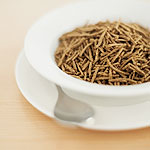 When it comes to prostate health, an enlarged prostate, called “benign prostatic hyperplasia” (BPH), can be a frustrating condition to say the least, and it doesn’t get any better when we attempt to find out what is causing it. Medical science has yet to answer that question, but several theories float around with the idea that testosterone might be involved. Many researchers think testes and the aging process combine to trigger BPH in men. But here is some alternative health advice to consider: low zinc levels may contribute to development of BPH.
When it comes to prostate health, an enlarged prostate, called “benign prostatic hyperplasia” (BPH), can be a frustrating condition to say the least, and it doesn’t get any better when we attempt to find out what is causing it. Medical science has yet to answer that question, but several theories float around with the idea that testosterone might be involved. Many researchers think testes and the aging process combine to trigger BPH in men. But here is some alternative health advice to consider: low zinc levels may contribute to development of BPH.
This latest health news comes courtesy of a study that compared zinc levels in the prostate tissue, plasma, and urine in patients diagnosed with BPH or prostate cancer. After analyzing results from tests, the researchers found that tissue zinc was decreased by 83% in prostate cancer patients, as compared to normal tissue in control patients. In BPH patients, there was a 61% decrease in mean tissue zinc as compared to normal tissues! Not surprisingly, both these values were deemed statistically significant by the researchers. As for plasma zinc (the amount of zinc suspended in blood plasma), prostate cancer patients showed a 27% decrease, as compared to controls, and an 18% decrease, as compared to BPH.
The researchers discovered one other important link between zinc and BPH and prostate cancer: urine zinc (meaning zinc lost from the body) was significantly increased to 53% in prostate cancer patients, and a 20% significant increase was observed in BPH, as compared to normal subjects.
The researchers concluded that it is evident from this study that BPH or prostate cancer may be associated with a reduction in the levels of tissue zinc and plasma zinc, and an increase in urine zinc.
If you are concerned about your prostate, go for a prostate check at your doctor’s. In the meantime, reduce your chances of getting BPH or prostate cancer by supplementing with these top five food sources of zinc:
1. Oysters — your number one source!
2. Fortified cereal
3. All meat
4. Whole grains (especially whole wheat, oats, rye)
5. Nuts & peanut butter
RECOMMENDED: Treating Benign Prostatic Hyperplasia with Saw Palmetto
